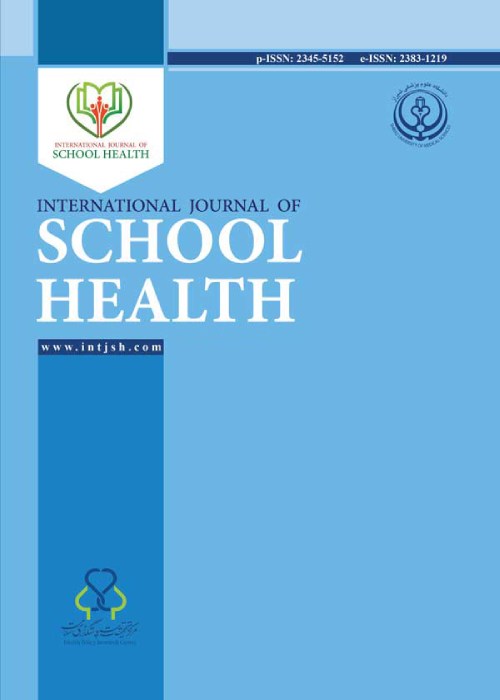The Effectiveness of an Autonomy-Based Exercise Training on Intrinsic Motivation, Physical Activity Intention, and Health-Related Fitness of Sedentary Students in Middle School
Author(s):
Article Type:
Research/Original Article (دارای رتبه معتبر)
Abstract:
Background
Understanding how to enhance the motivation of inactive students to do physical activity is of great importance for school health. The purpose of the present study was to investigate the impact of an autonomous exercise training intervention on intrinsic motivation, physical activity intention, and health-related fitness of sedentary students in middle schools of Aliabad Katoul city, Golestan province, in 2019.Methods
The present causal-comparative field study was conducted on 45 middle school boys (mean age: 15.08 years) who were sedentary according to Godin-Shephard Questionnaire. The subjects were randomly assigned into three groups: Choice (autonomy training), No-Choice (training without autonomy), and control (no training). Subjects in Choice and No-Choice groups practiced physical fitness items (including flexibility and endurance) for eight weeks, such that the Choice group was allowed to the chosen order of exercises while the No-Choice group was trained in a predetermined order. Intrinsic motivation and physical activity intention were measured by questionnaire and health-related physical fitness components including flexibility, upper-body endurance, and cardiovascular endurance were evaluated by standard tests. One-way and mixed analysis of variance (ANOVA) were used to analyze the data. Tukey test was also used as follow-up test.Results
The participants in the Choice group reported higher intrinsic motivation (6.11±0.53) and physical activity intention (6.20±0.62) scores compared with other groups in post-test. Moreover, the results showed that autonomy training compared with training without autonomy and no training significantly increased intrinsic motivation (F=36.03, P<0.001) and physical activity intention (F=36.68, P<0.001). However, autonomy training did not improve physical fitness components such as flexibility (P=0.847), upper-body endurance (P=0.572), and cardiovascular endurance (P=0.982) more than non-autonomous training.Conclusions
These results may indicate that the feeling of autonomy during exercise training has a greater effect on psychological components (including intrinsic motivation and physical activity intention) compared with physical components (including physical fitness).Keywords:
Language:
English
Published:
International Journal of School Health, Volume:7 Issue: 1, Winter 2020
Pages:
40 to 47
magiran.com/p2102653
دانلود و مطالعه متن این مقاله با یکی از روشهای زیر امکان پذیر است:
اشتراک شخصی
با عضویت و پرداخت آنلاین حق اشتراک یکساله به مبلغ 1,390,000ريال میتوانید 70 عنوان مطلب دانلود کنید!
اشتراک سازمانی
به کتابخانه دانشگاه یا محل کار خود پیشنهاد کنید تا اشتراک سازمانی این پایگاه را برای دسترسی نامحدود همه کاربران به متن مطالب تهیه نمایند!
توجه!
- حق عضویت دریافتی صرف حمایت از نشریات عضو و نگهداری، تکمیل و توسعه مگیران میشود.
- پرداخت حق اشتراک و دانلود مقالات اجازه بازنشر آن در سایر رسانههای چاپی و دیجیتال را به کاربر نمیدهد.
In order to view content subscription is required
Personal subscription
Subscribe magiran.com for 70 € euros via PayPal and download 70 articles during a year.
Organization subscription
Please contact us to subscribe your university or library for unlimited access!



